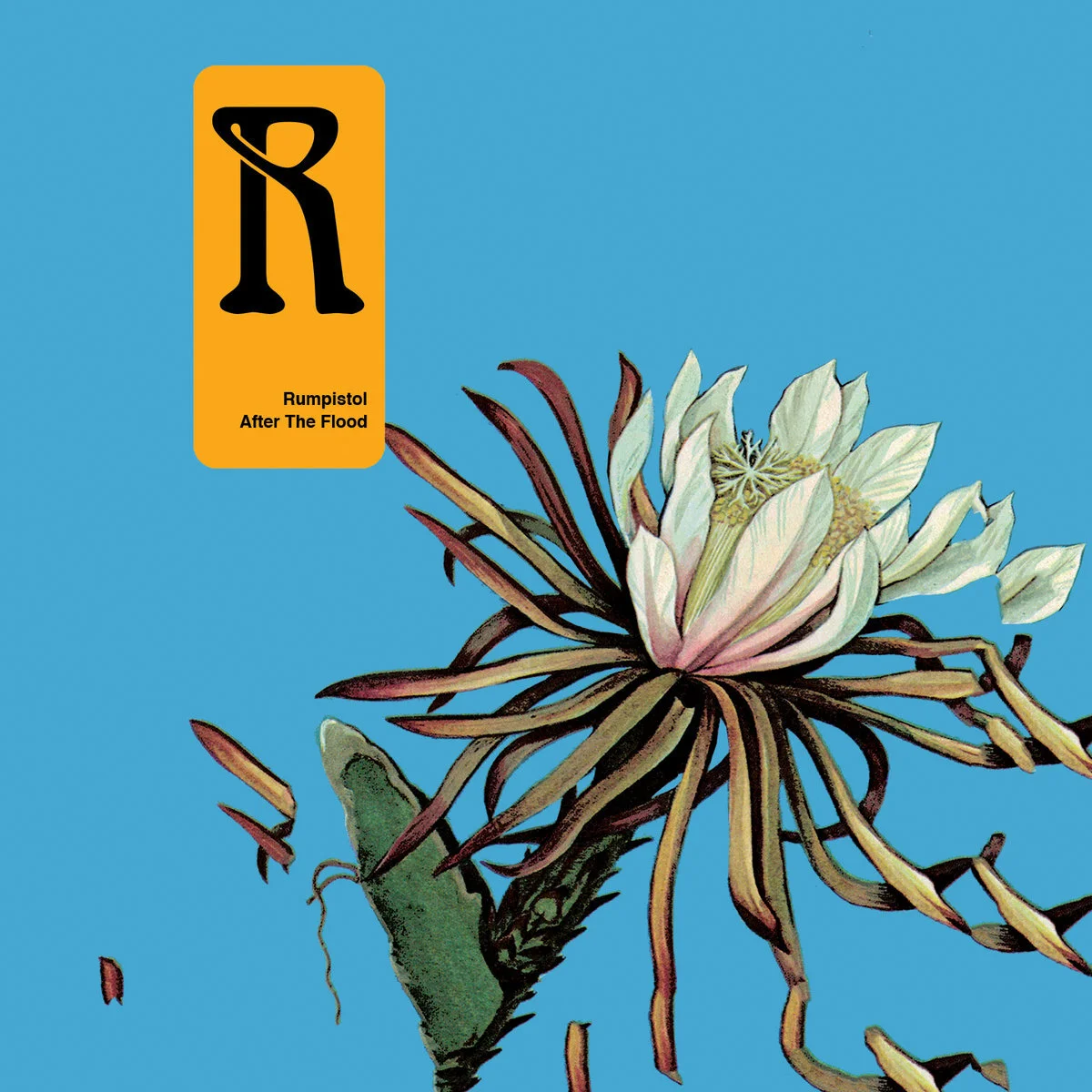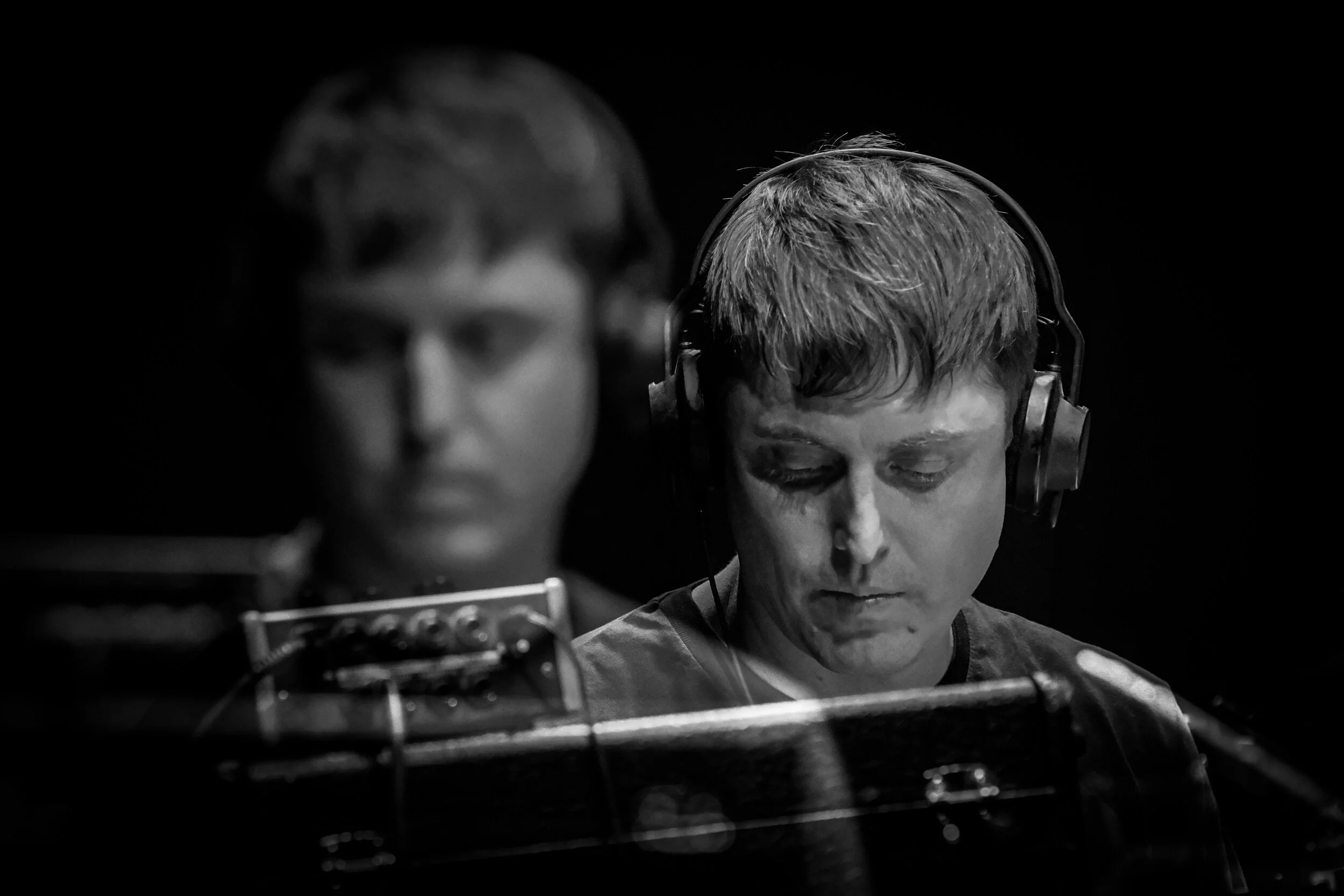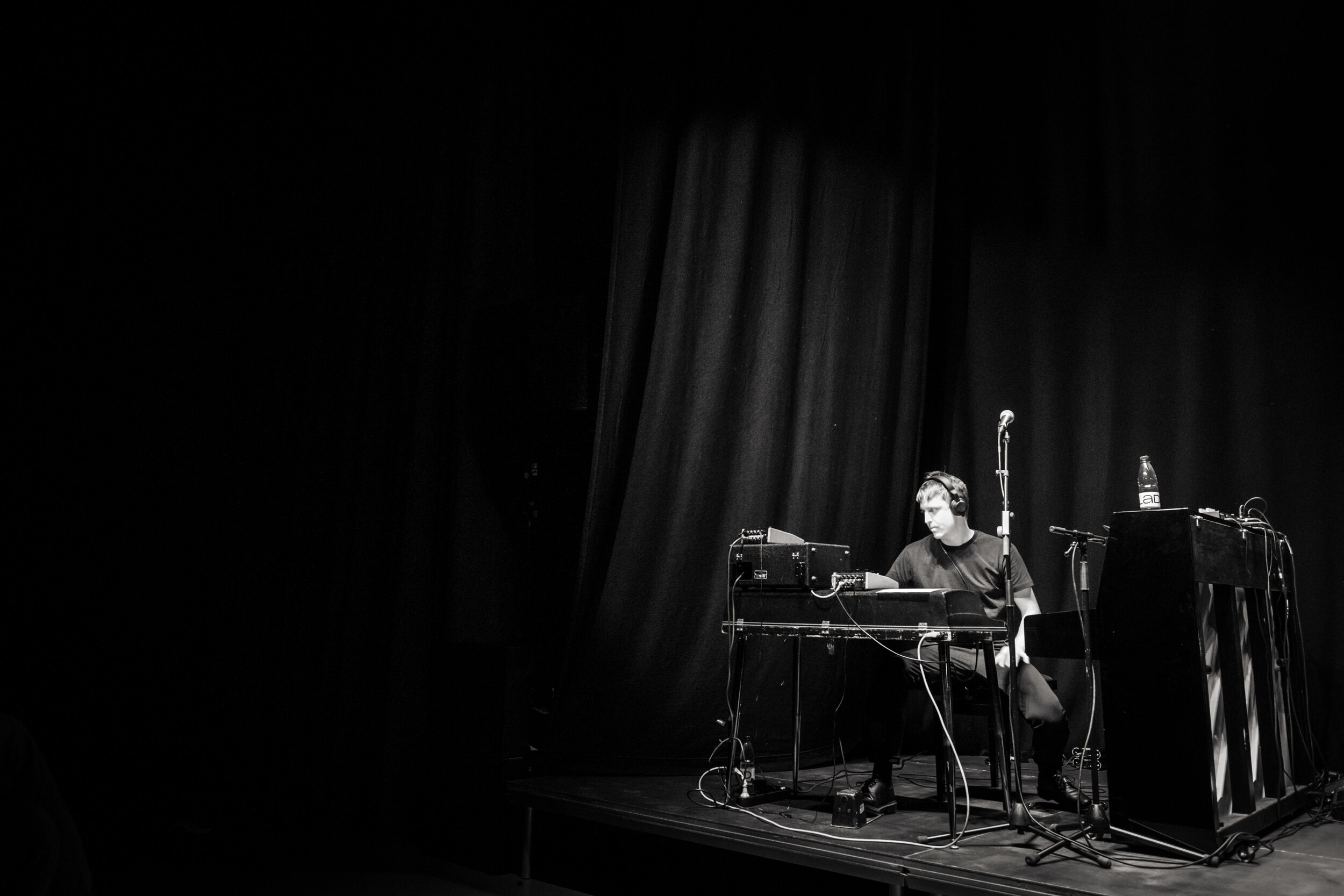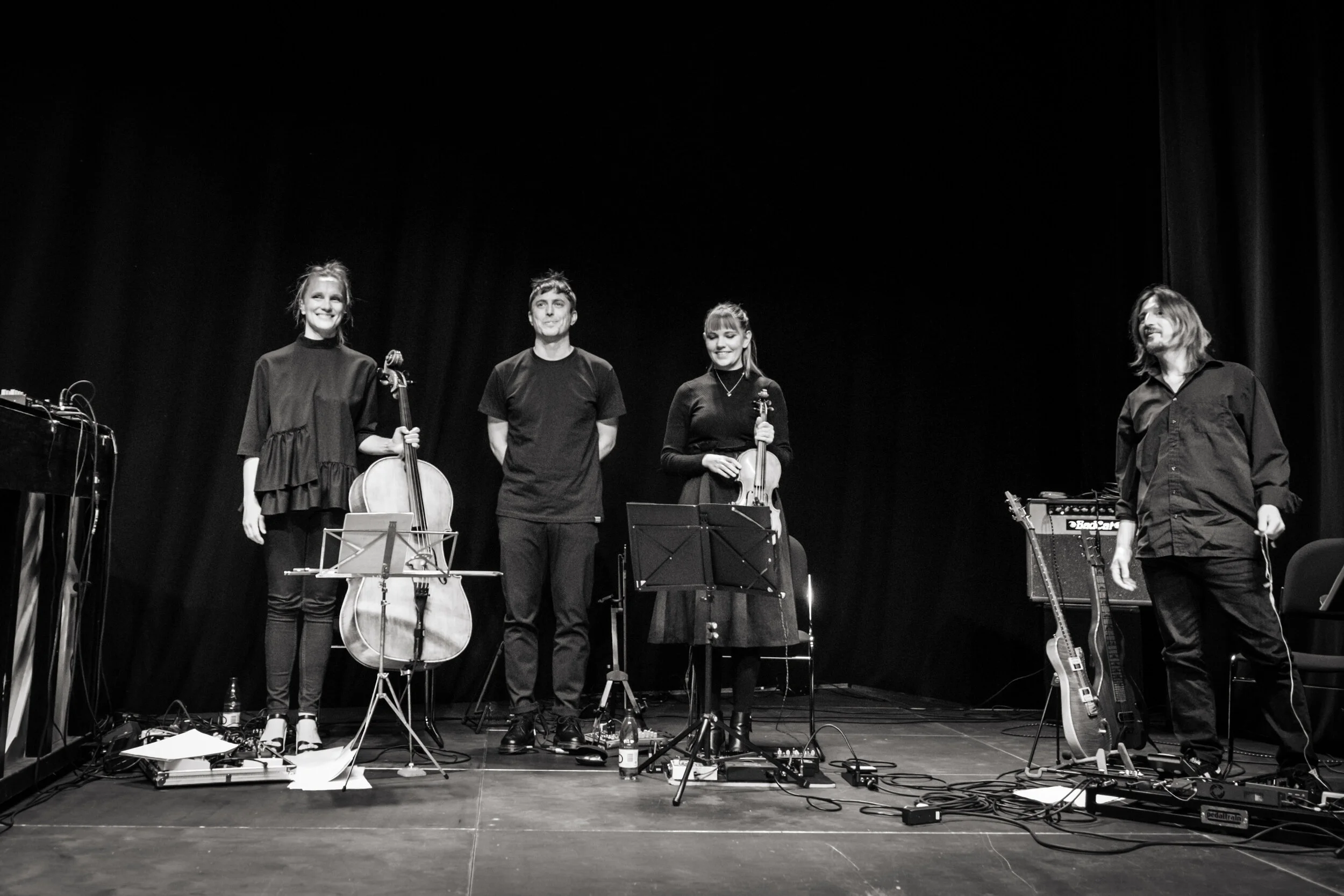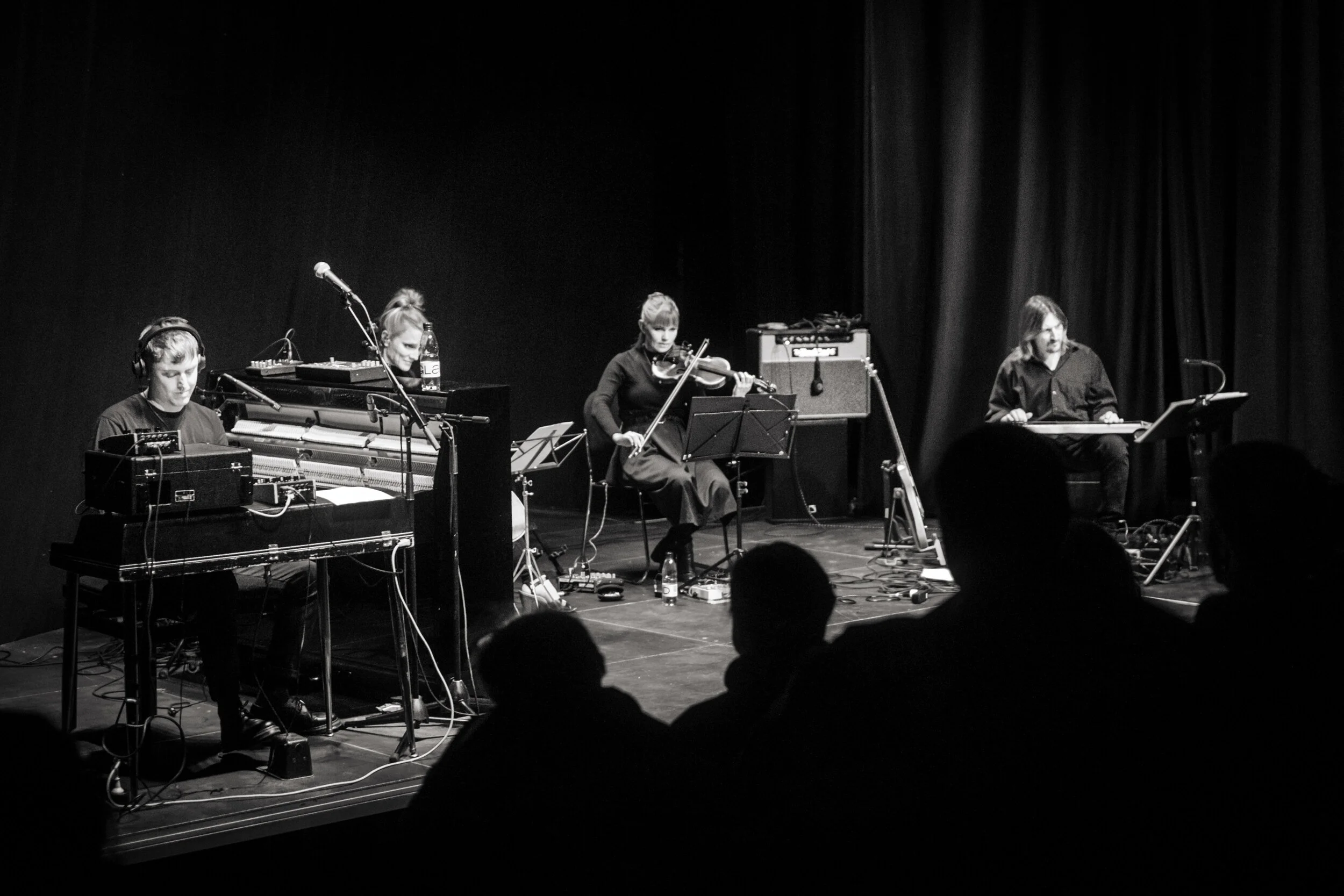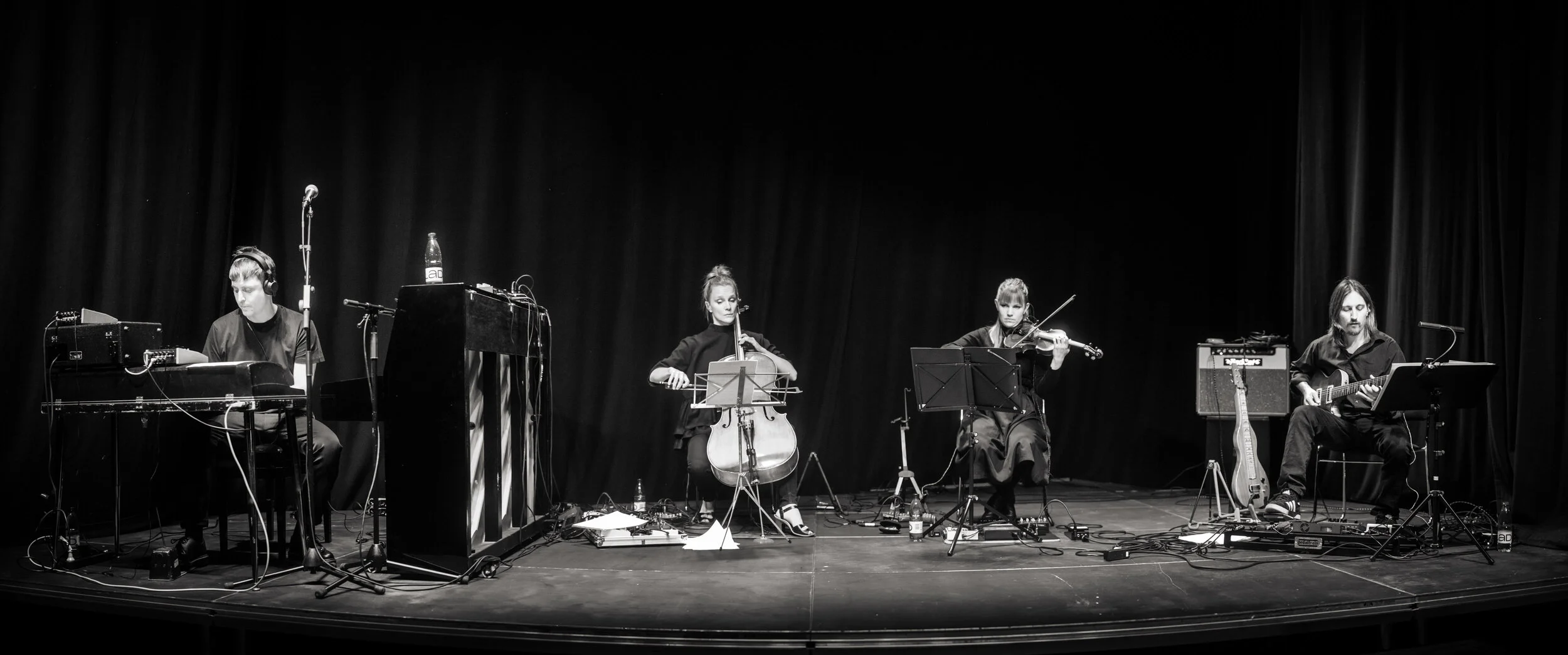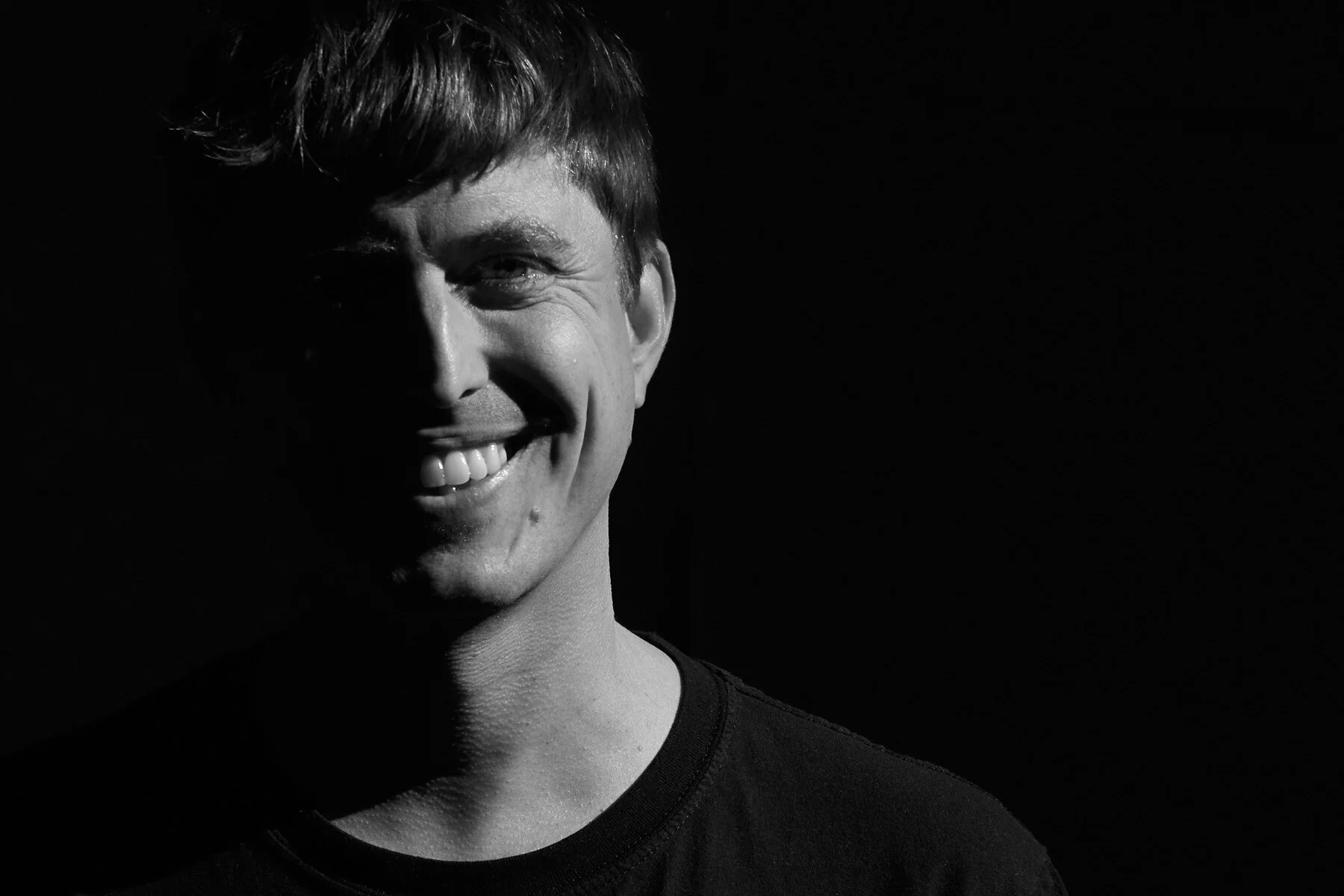Rumpistol
by Mister Mime
19th April 2021
“After the Flood”, the sixth album by veteran Danish musician and composer Jens B. Christiansen under his primary alias 'Rumpistol', is in many ways a turnaround from his previous efforts. After a career of over 15 years, mainly in the electronic music scene, a computer screen triggered burn-out led him to reinvent himself and his music-making methods. The resulting record turned out to be therapeutic as well as artistically rewarding for Jens, as he went back to his instrumental roots and composed the entirety of this album using the piano as the musical core.
“After the Flood” has an uplifting, ethereal quality to it, yet remains tangible, almost tactile, in its use of organic, non-electronic instruments and textures. As refreshingly new this musical direction is for a Rumpistol album, it’s also somewhat familiar-sounding to fans of the artist. The melodies seem to ebb and flow, undulating around each other in that particular Rumpistol way that point forward (and perhaps even upwards, celestially), yet evoking memories of past works. “After the Flood” isn’t merely music to casually relax to. Although the album sounds very pleasing to the ear, it’s an engaging and thought-provoking listening experience.
MM: ‘After the Flood’ - What does it mean?
Rumpistol: I came up with the title around 5 years ago when I did the first demo version of the track which eventually became the title track of the album. It just popped out of my mind and I liked it. I felt it had a post-apocalyptic sort of vibe to it. Of course, you could reference it to the old testament but I wasn’t really thinking of that. Normally I would name my tracks boring things like “Piano piece in D minor” to begin with, but this was a title I kept with me for a while. So after I suffered my burnout and I started thinking about titles for the album, I found that one to be a very fitting title. It became a description of what I was going through personally, a sort of internal flood. Of course, there is a dark vibe to it, but there’s also a lot of light or hope. So actually it has more to do with the period after the crisis. Hence the title was fitting.
MM: What about the other tracks?
Rumpistol: There is a track called “Inside the Sarcophagus”, the fourth track, which was inspired by “Voices from Chernobyl / Chernobyl Prayer” - Svetlana Alexievich's book that inspired the HBO Series “Chernobyl”. The series was great but the book is even better. It’s basically an account of all the eyewitnesses who lived in the Chernobyl area, from children to government officials to the old farmers, who didn’t want to move out of the contaminated zone. So the government built this shell around the plant to prevent the radiation from seeping out further. And that was built very quickly and it was of very poor quality so they had to replace it about 20 years later. Of course, nobody wanted to enter it since it’s contaminated and dangerous. So the title was just like a sort of mind play about what could be going on inside the shell, the sarcophagus. But again also a metaphor of a contaminated mind – the stressed mind. The fun fact was that when they opened it up 20 years later they found radiotrophic fungi that managed to grow in there and somehow absorbed the radiation!
For the opening track “There There” I borrowed the title from a book by Native American author Tommy Orange. The book deals with the situations of people of the Native American community in contemporary San Francisco, and how so many families have been broken due to all the different challenges American society has put on these people. Tribes people who rely on nature have seen their entire reality become destroyed by forced relocations, city development, alcoholism etc. In the title, Orange references the novelist Gertrude Stein, who also grew up in San Francisco and later moved away but eventually came back after 40 years to her birth town which she, by then, couldn't recognise anymore. So her famous quote is,” there is no there there anymore”. A statement that I can relate to, living in Copenhagen which is going through a massive city development at the moment. Sometimes you go for a walk and you find areas that you used to hang out in being completely changed. It's super alienating! Obviously, the title also has another meaning: ‘there there’ is an expression of consolation in English meaning everything's going to be okay.
MM: What do you think about technology in our lives as of 2020? How have you seen technology change and influence humans to change? Especially in music. And how can we retain our individuality and humanness while making computers and technology work for us rather than against us?
Rumpistol: Yes. Well, I’m 43 so I’ve seen quite a lot of changes in regard to technology throughout my life and the acceleration is just insane. I didn’t have internet till I was 16 or so, I grew up without it and I didn't even use the computer that much as a child. In regard to music, I was introduced to computer sequencing at my youth club where they had an early version of Logic called Notator, which I used a bit. So I started playing around with it back in the early 90s. But to be honest I wasn’t really that impressed with it. I was much more into playing real instruments. I played the guitar intensively, up through the 90s and I was also singing, playing bass, drums and keyboards in different bands.
For me, as a child, it was very much a social thing to play music, and that’s also how I got introduced to it by my parents who were into folk music at that time. My brothers and I grew up with a lot of folk music and dances around us. Everybody was playing violins and accordions, even if they weren't that good at it. It was totally out of passion but it wasn’t about playing professionally or perfectly but playing to have a social experience together, with song and dance. That’s something that I’m really thankful that I got to experience because it motivated me in a healthy way and made it possible to join in without feeling too much pressure. These days I think that a lot of kids who want to start singing or learn an instrument are motivated for the wrong reasons or scared away by things they see in the media. No doubt shows like X-Factor or American Idol can give you unrealistic expectations.
Rumpistol: When I was a kid, there were no talent shows on TV. Music, at least for me was much more a social thing, And if you want to learn something new, the worst thing you could be feeling is fear that you might not be good enough.
Technology, as I see it is a blessing and a curse: It can help us, provide us with affordable tools, like the home studio, which has become standard with most aspiring songwriters these days.
But I do think that this expectation of music to sound super professional is giving people false ideas of what they should sound like when they're just starting out. I mean it can feel impossible for a beginner to reach that level. The stakes are so high. And we can say the same with social media and filters, like how it forces us to think that we always have to present ourselves from our best side. It has become normal to add filters, get rid of our wrinkles. Of course, we want to look good but we are definitely creating a false image for young people to grow up with, and that's a lot to live up to.
Rumpistol: I think with electronic music production, you can get sucked into it like I was for many years, and I really enjoyed it by the way. But it can also become a never-ending hamster wheel, like when you're polishing your productions to sound totally perfect, and you get rid of every little mistake. Sure, it can be fascinating, but sometimes I listen to these productions and wonder how the person who made this really feels. And that's kind of the curse of technology and electronic music too.
There's always been a tendency in electronic music where some people invent a genre, and thousands of people try to copy the same tricks and it becomes a formula. So if you're doing dubstep, you need the wobble bass, the half time etc. Or if you're making house music you'd reach for other elements. And so many producers think that they need to have those exact elements to justify their sound. So they're really spending a lot of time and energy trying to sound like someone else, and that's when you have to ask yourself, "Who am I doing this for?" Is it for the community, so it will sound good when the DJ mixes it with another track in the same genre, or am I also expressing my self here? I believe it's really important to pour your self into it and add something unique to it. Especially these days when you have the accessibility of digital software, and it's so vast. Everybody who buys a Mac gets GarageBand, and you can make a perfect production with that. You can go on YouTube and learn from tutorials to get started. If you're disciplined you won't even need to take lessons, and that's great! I wish I had something like that while growing up. I would have locked myself in my room and just gone for it. But then again, I would have missed out on playing with people and practising my instruments.
MM: What would you say to producers that could help them keep a balance between putting in the work in the studio and testing your music and yourself out there with your audience?
Rumpistol: One of the first things I always tell young producers is that it's great to practice and get better at your skill, but it's also really important to get feedback, especially from people who are not necessarily your best friends or family. Sometimes, I like to do the blind test, where you just put on your music without telling people. Most of the times they would just continue talking, or perhaps they may ask you who the artist is. If you deliberately ask someone to listen to your track, they will mostly just tell you that it's great ha ha! You should also have honest and trusted friends, who will give you genuine feedback. If you have the opportunity to play it in front of an audience, that's even better.
MM: What’s your take on the concept of genres, especially in electronic music? You've come from a vast musical background, playing guitars in rock bands, playing the piano, producing as well. Well as such we know that it's all one thing. But from the point of view of how genres have shaped music and the music business, selling records.
Rumpistol: I think most genres are made up by music critics to make it easier for them to categorize music that they have to review. That being said, it can be useful to have genre tagging, but in my opinion, it can also be limiting for the artists. As I was saying before, especially in electronic music there is a tendency to follow a formula. If you're making drum & bass, psy-dub or any other style, you have to follow a certain formula. From a curious musical perspective, that gets really predictable and boring. I think it's up to us, the composers, producers, to break those categories and create our own categories. That's usually when interesting music comes into the world. The industry must then try to keep track. It's better if the industry follows the artist rather than the other way round.
I've always been moving from one thing to the next. If you look at my entire back catalogue, you can find a mix of at least 30 different genres there. That's how I keep myself curious and try not to fall into the same patterns every time. If I find that I am repeating the same formula, then I find it too predictable and I get bored. I like to make music that surprises me, music that takes me to places that I didn't expect. I think music should be fun and driven by passion.
MM: What are your interests outside of music?
Rumpistol: I have two kids now, so of course they take up a lot of time and energy. We go out to the coast as much as we can, where we've build a little cabin. There I like to go swimming in the ocean, so I bought a swimsuit that can help me to swim even when the water is cold.
I'm also getting into gardening. Growing my own vegetables etc. It's really nice.
Then I read books and watch movies when I have the chance to do so and of course, I like to listen to music.
I still enjoy singing too for fun. My brothers and I have little get-togethers where we sing in harmonies. As you can see, I love the social aspect of music, where you don't necessarily rehearse. It's just for our own fun.
MM: What does the future hold for Rumpistol?
Rumpistol: I just finished two scores: one for a small theatre here in Denmark and one for a BBC documentary about the art of stop motion.
We've also beginning to open up a bit here in Denmark, so first I'm going on tour with my other band Kalaha in May.
Kalaha is a four-piece band and we tour quite a lot. It's me on keyboards, Emil de Waal on drums, Niclas Knudsen on guitar and Spejderrobot on computer/live sampling. Sometimes we have Turkish singer Hilal Kaya with us as well, and it's a lot of fun. That's also a way of getting back to my roots when I was playing with bands. Our latest album “Mystafa” came out in March this year.
https://orcd.co/kalaha-mystafa
Later this year I'll be touring with my ensemble: I have a violinist (Maria Jagd), a cellist (Line Felding) and a lap steel guitarist (Kristian Hoffmann). We have some shows in Denmark in the fall, to begin with, and I'm really looking forward to that.
Apart from that, I've started working on a new Rumpistol album, so there's a lot of stuff going on for sure. Hopefully, when the world opens up, we are going to be travelling outside of Denmark as well.
You Can Follow Rumpistol and Kalaha on:
https://oenrec.bandcamp.com/album/after-the-flood
https://www.facebook.com/rumpistol/
All Images and Intro words courtesy of Rumpistol
